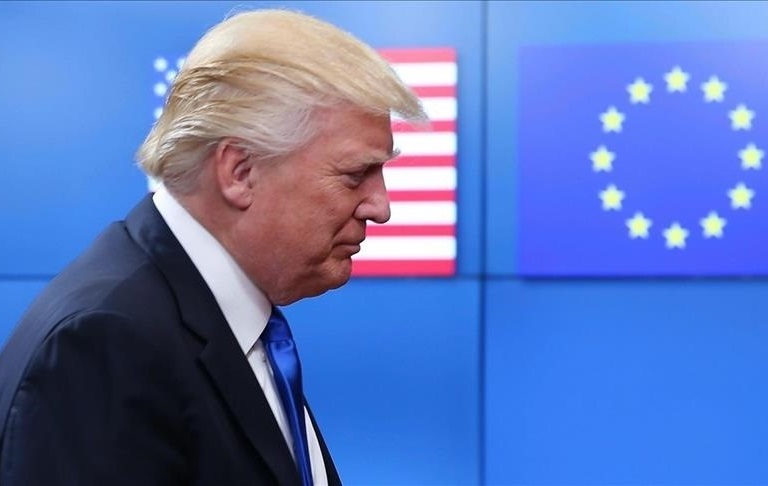In recent years, the United States has adopted an increasingly unilateral approach to international affairs, withdrawing from key global agreements and sidelining multilateral institutions. This shift, particularly visible during the Trump administration, has had significant consequences for the global order, especially for Europe. As Washington continues to assert its dominance while acting unpredictably, Europe is faced with a critical the dilemma of whether to continue operating under US leadership or to develop the strategic autonomy necessary to assert its own global role. This essay argues that US unilateralism is undermining European sovereignty, weakening transatlantic cooperation, and forcing Europe to choose between dependency and difficult independence.
One of the most visible expressions of American unilateralism was the withdrawal from the Paris Climate Agreement in 2017. This decision not only undermined international environmental cooperation but also revealed how little weight the US placed on its allies’ concerns. The US withdrawal demonstrated that even shared priorities could be abandoned if they conflicted with domestic politics or ideological agendas. While the Biden administration re-entered the agreement, the episode highlighted the vulnerability of global cooperation to shifts in US leadership, a fact that Europe can no longer ignore.
A similar pattern emerged with the US withdrawal from the Iran nuclear deal (JCPOA). Negotiated over years with the participation of European powers, the deal was seen as a diplomatic success in curbing nuclear proliferation. The Trump administration’s decision to exit the agreement and impose sanctions on Iran, with extraterritorial effects on European businesses, placed Europe in a difficult position. Despite its efforts to salvage the deal through mechanisms such as INSTEX (Instrument in Support of Trade Exchanges), the EU struggled to shield its companies from US penalties. This episode revealed the limits of European agency in the face of US economic and diplomatic dominance.
The consequences of US unpredictability have not been confined to agreements and treaties. Strategic coordination has also been tested, most notably in responses to global crises. The Ukraine war is an example. While Europe has played a crucial role in supporting Ukraine, a lot of the leadership, in both rhetoric and resources, has also come from Washington. The United States has set the pace on sanctions, weapons deliveries, and diplomatic framing. Although European unity has been commendable, it has often taken the form of alignment. Many EU states remain somewhat dependent on US intelligence, logistical support, and military capabilities, particularly through NATO.
Recent developments in the Middle East further underscore this problem. As we saw the tensions between Israel and Iran escalate, the US continued to dominate the narrative, issuing threats and taking decisions that reverberate globally. European countries, while expressing concern and advocating for de-escalation, did struggle to exert an important influence on the course of events. The EU’s historical ties to the region and its economic interests are substantial, yet it remains largely reactive, constrained by its alliance with Washington and internal divisions.
Moreover, political fragmentation within the EU makes coordinated action difficult. Eastern European states, in particular, continue to see the US as a crucial security guarantor against potential Russian aggression. Meanwhile, economic divergences between northern and southern Europe, as well as differing historical relationships with the US, prevent the formation of a unified strategic culture. These divisions are exploited, consciously or otherwise, by Washington, which benefits from dealing with a fragmented Europe rather than a cohesive bloc.
This imbalance is not merely a diplomatic inconvenience, it has tangible costs. Europe’s energy security has been deeply affected by decisions taken in Washington. For instance, the push for sanctions on Russian energy, while morally and politically justifiable, has had a severe impact on European economies. The US, less reliant on Russian imports and with its own domestic energy production, has been able to mitigate the fallout far more easily. Meanwhile, Europe has faced soaring energy prices and growing internal political pressures. Rather than a coordinated response based on shared burden, the crisis has exposed the vulnerability of European states when aligned too closely with a unilateral US agenda.
Can Europe change this trajectory? In theory, yes. The EU remains an economic powerhouse with the potential to develop autonomous capabilities in defence, technology, and foreign policy. Institutions such as the European Commission and the European External Action Service provide a strong foundation for collective action.
The real question is not whether Europe wants to be more sovereign, but whether it is willing to accept the costs of independence. Strategic autonomy means investing more in defence, coordinating more deeply across foreign policy, and occasionally taking positions that might conflict with US interests. These are politically difficult moves, especially in a union of 27 states with varied priorities.
In conclusion, US unilateralism is weakening European sovereignty. While the transatlantic alliance remains valuable, its asymmetry is growing more pronounced as Washington becomes less predictable and more self-interested. Europe faces a choice: continue to align with the US, or pursue the difficult path of autonomy. The latter is fraught with obstacles: political, institutional, and economic. Sovereignty, after all, is not given. It is asserted.



